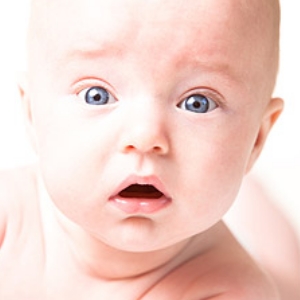
Identifying the cause of brain injury among newborns could help doctors develop new prevention strategies, according to a joint report from two leading groups of US obstetricians and paediatricians.
The updated guidelines on neonatal encephalopathy (the term for newborn brain disorder or injury) – released by the American College of Obstetricians and Gynaecologists and the American Academy of Paediatrics – advise doctors to examine every possible factor that could have contributed to the brain injury. Previous recommendations issued in 2003 focused on determining if a lack of oxygen at the time of birth caused neonatal encephalopathy.
"Although a significant portion of newborn brain injuries are due to problems around the time of labour and delivery, some cases occur before the pregnant patient even arrives at the hospital and the labour floor," Dr Mary D'Alton, task force chair, said in a news release from the American College of Obstetricians and Gynaecologists.
Read: Birth triggers newborn for survival
The possible causes the task force advises doctors to consider include mother's medical history, obstetric factors or issues during birth, and problems with the placenta.
Advances in treatment
"We know that neonatal encephalopathy is a brain disorder with a variety of causes," said D'Alton, a maternal-foetal medicine specialist at Columbia University Medical Centre in New York City. "Metabolic disorders, inflammations and infections, genetic conditions, and oxygen deprivation to the infant are all potential causes, but we don't know how many cases are preventable. By doing a root-cause analysis, we hope to identify issues that may help prevent some cases of neonatal encephalopathy in the future."
The new guidelines are published in the April issue of Obstetrics and Gynaecology and the May issue of Paediatrics.
Experts reacted enthusiastically to the report.
"We see this report as a safety document," said Dr Jay Goldsmith, a paediatrician at Tulane University in New Orleans and a liaison between the American Academy of Paediatrics and the task force. "It covers complete evaluation of all babies who are encephalopathic at birth and, if there are safety issues that we can identify, how to try to correct them."
The updated guidelines reflect advances in the treatment of neonatal encephalopathy. For example, neonatal hypothermia treatment cools a newborn's body temperature from 98.6 degrees to 92.3 degrees for 72 hours. The goal of the treatment is to minimize long-term brain damage.
Prompt recognition
Advances in newborn brain imaging can also help doctors determine when an infant's brain injury occurred and how severe it is.
"The benefits of both of these advances are highly dependent on prompt recognition of neonatal encephalopathy," said D'Alton. "Milder cases of newborn brain injury may not always be recognized, so education is key."
The task force also emphasised a more active role for paediatricians in diagnosing newborns with brain injury. "There are approximately 3 000 US hospitals and birthing centres that deliver babies, but only 1 000 of them have neonatal intensive care units," Goldsmith said in the news release.
"Health care providers at the other 2 000 hospitals are responsible for providing treatment or referring to a centre that is capable of providing therapeutic hypothermia. That's the paediatric side of the responsibility," he added.
Read more:
How baby’s brain wiring develops
Newborn babies have Neanderthal brains
Baby brains provide clues to disorders




 Publications
Publications
 Partners
Partners














